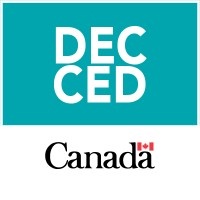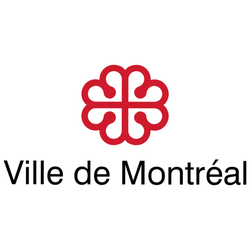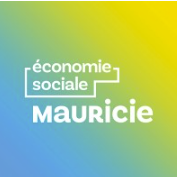
Official Languages Economic Development Initiative in Quebec — Not-for-profit
At a glance
- Up to 50% of project cost
- Open Date : November 2, 2020
- Other services (except public administration)
- Public administration
- Quebec
- Non-profit
- Public or Parapublic institution
- For-profit business
- All revenue ranges
- All organization sizes
- Language Minorities
- Economic, Social and Community Development
- Employment and Training
- Diversity and Inclusion
- Rural / Remote communities
- Business owners / entrepreneurs
- Minority groups
- All structures
- Regional
Overview
Get a non-repayable contribution to cover up to 90% of the costs of a project that supports the economic development of an official-language minority community in Quebec through a range of activities.
Activities funded
This grant targets SMEs and NPOs in particular regions of Quebec with significant English-speaking communities. The funding is focused on regions outside the Greater Montréal area and specific economic sectors.
- SMEs in Regional County Municipalities (RCMs) outside the Greater Montreal region where English-speakers make up more than 5% of the population.
- NPOs in RCMs that have a population including more than 500 English-speakers.
Eligibility
The eligibility criteria for this grant focus on the applicant's organization type and their geographical and demographic context.
- The applicant must be an SME located in a Regional County Municipality (RCM) outside the Greater Montréal area where English-speakers constitute more than 5% of the total population.
- Alternatively, the applicant can be an NPO in an RCM with a population that includes more than 500 English-speakers.
- SMEs or NPOs located in economically vulnerable RCMs or in Montréal’s East End may be considered for flexible program conditions.
Who is eligible?
Eligible clients for the Economic Development Initiative – Official Languages under the Canada Economic Development for Quebec Regions program include small and medium-sized enterprises (SMEs) and non-profit organizations (NPOs) that serve official language minority communities. Specifically, the funding is targeted at:- SMEs located in a Regional County Municipality (RCM) outside the Greater Montréal region where English-speakers constitute more than 5% of the total population.- NPOs in an RCM that includes more than 500 English-speakers within its population.Projects from organizations in economically vulnerable RCMs or in Montréal’s East End may also be eligible for more flexible program conditions. Notably, retail businesses, food services, transportation services, housing construction, daycare services, beauty salons, and nightlife establishments are explicitly listed as ineligible for this funding. The grant aims to support innovative, entrepreneurial projects that contribute to economic development, partnerships, and economic diversification within these communities.Who is not eligible
This grant excludes certain companies and industries mainly due to their primary activity. These restrictions ensure that financial assistance is directed toward projects that align with the initiative's objectives of supporting OLMC economic development.
- Retail businesses (e.g., clothing stores, grocery stores or automobile sales and maintenance outlets).
- Food services (e.g., restaurants and cafés).
- Transportation services.
- Housing construction.
- Daycare services.
- Hair and beauty salons.
- Nightclubs, bars and cabarets.
Eligible expenses
The grant supports the economic development of official language minority communities through various innovative and entrepreneurial projects. Eligible activities include strategy development, networking, commercialization strategy implementation, and use of specialized resources.
- Development of strategies such as intelligence, specifications, studies, diagnoses, or action plans.
- Networking and business contacts, especially for organizations that support entrepreneurship.
- Provision of information, consulting, and support services.
- Implementation of commercialization strategies including product and service design.
- Acquisition of equipment, IT tools, and technologies.
- Facility development, construction, modernization, or expansion.
- Recruitment or use of specialized resources to promote official languages in Quebec's French-speaking business community.
Eligible geographic areas
The funding supports various expenses crucial to the development and success of projects in official language minority communities.
- Development of strategies including intelligence, specifications, studies, diagnoses, or action plans.
- Networking and business contacts facilitation.
- Provision of information, consulting, and support services.
- Implementation of a commercialization strategy, including the design of products and services.
- Acquisition of equipment, IT tools, and technologies.
- Facility development, construction, modernization, or expansion.
- Recruitment or use of specialized resources to promote official languages.
Selection criteria
The evaluation and selection of projects for this grant are based on specific criteria to ensure alignment with the grant’s objectives and valuable contributions to official language minority communities (OLMCs).
- The economic benefits for an official language minority community (OLMC).
- The project’s contribution to the Initiative’s objectives and expected results.
- Alignment with CED’s mandate and priorities.
- The incentive nature of the assistance and the demonstration of the financial need required for the project to proceed, considering other funding sources.
- The proponent’s management capacity.
- The viability of the business or organization.
- The degree of risk involved in the project.
- The impact on competition.
- The availability of CED funding.
How to apply
Consultation of resources
- Consult the Project Presentation Guide available on the DEC website.
- Familiarize yourself with DEC's Strategic Plan and other relevant resources and tools.
Project Preparation
- Develop a detailed project proposal including the expected economic benefits for the CLOSM.
- Prepare a clear budget and action plan.
- Gather all necessary supporting documents.
Prior communication
Submission of the request
- Submit the project through the channels indicated by DEC.
- Ensure that all analysis criteria are well-argued in the project presentation.
Additional information
Here are additional relevant details for this grant:
- Financial assistance is repayable without interest for SMEs, with repayments starting two years after project completion.
- Non-repayable financial assistance for NPOs generally covers up to 90% of authorized costs.
- Economically vulnerable RCMs or Montréal's East End may be eligible for flexible program conditions.
Frequently Asked Questions about the Official Languages Economic Development Initiative in Quebec — Not-for-profit Program
What is the Official Languages Economic Development Initiative in Quebec — Not-for-profit?
How much funding can be received?
Who is eligible for the Official Languages Economic Development Initiative in Quebec — Not-for-profit program?
What expenses are eligible under Official Languages Economic Development Initiative in Quebec — Not-for-profit?
Who can I contact for more information about the Official Languages Economic Development Initiative in Quebec — Not-for-profit?
Where is the Official Languages Economic Development Initiative in Quebec — Not-for-profit available?
Is the Official Languages Economic Development Initiative in Quebec — Not-for-profit a grant, loan, or tax credit?
More programs like this

ÉcoPerformance — Recommissioning of building mechanical systems
Gouvernement du Québec
Call for projects to combat homophobia and transphobia
Gouvernement du Québec
Innovative Projects Program
Hydro-Québec
Technoclimat
Environnement Québec (MELCC)
Financial assistance for the hiring of a person to integrate a job on a long-term basis
Gouvernement du Québec
International Climate Cooperation Program (ICCP)
Environnement Québec (MELCC)
Acting to support growth
City of Montreal (MTL)
Greater Montreal Climate Fund — 2025-2026 Call for projects
Greater Montreal Climate Fund
Social Economy Support Fund
Social Economy Mauricie